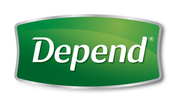Incontinence isn’t limited to older women. The condition also affects younger women, particularly those who are pregnant or who have recently had a baby.
The reason for this is the increased pressure on the bladder during pregnancy, as well as potential damage caused during childbirth.
If you’re experiencing incontinence during or after pregnancy, it’s important to remember you are not alone. In most instances, the condition is temporary, and in all cases, it is manageable.
Stress incontinence during pregnancy
Stress incontinence is the main type of incontinence experienced by women during and after pregnancy. Here, leakage usually occurs when pressure is put on the bladder, such as when you cough, sneeze, laugh or bend over.
In pregnancy, this is often due to the baby putting extra pressure on the bladder. After giving birth, this can be caused by damage to the support structures of the bladder and/or urethra. This causes the angle of the urethra to move from its normal position during physical exertion, which results in urine leaking out.
Why do women experience incontinence after childbirth?
Childbirth puts extra pressure on the ligaments, muscles and support tissue surrounding the bladder and urethra, stretching them and potentially leading to incontinence after the baby is born.
Various things can increase the chances of post-pregnancy leaks, including:
- Prolonged labour and delivery
- Trauma caused by childbirth
- Giving birth to a large baby
How long will my incontinence last?
After childbirth, women can experience changes to bladder function and control for different amounts of time. For some women, this can be as little as four weeks; for others, a few months, or even a year.
Many women will regain bladder control post-pregnancy, whilst some won’t. This can be due to the specifics of the birth, but also because your genes can make you more vulnerable to incontinence. Try speaking to your mother or any sisters that have had children to understand more about whether they experienced bladder leakage during or after pregnancy.
If your symptoms continue for longer than expected, visit your GP so they can identify the type of incontinence you have, and advise you on the best method of management or treatment. In some cases, your condition may be cured with medication or surgery. Regardless of whether it can be cured, incontinence can always be managed discreetly with products like Comfort Protect from Depend®.
How to avoid incontinence during and after pregnancy
One way to help reduce your likelihood of developing incontinence when pregnant or after giving birth is to strengthen your pelvic floor muscles with regular Kegel exercises.
A strong pelvic floor helps to maintain bladder control, and exercises are completely safe to do during pregnancy. It’s recommended you continue with them after giving birth too, to build back strength in your Kegel muscles.
Additionally, going to the toilet at regular times – around every two hours – regardless of whether you need to go, can help to avoid accidental leaks.
Managing pregnancy-related incontinence
Incontinence during pregnancy and after giving birth is normal. It’s not something to be ashamed of and can easily be managed with female incontinence products, like pads and pants.
Find the right incontinence product for you
Designed to fit your body shape and delivered in discreet packaging, Depend® offers a range of incontinence products for women, including pads and pants. Explore our range to find the right fit for you.

